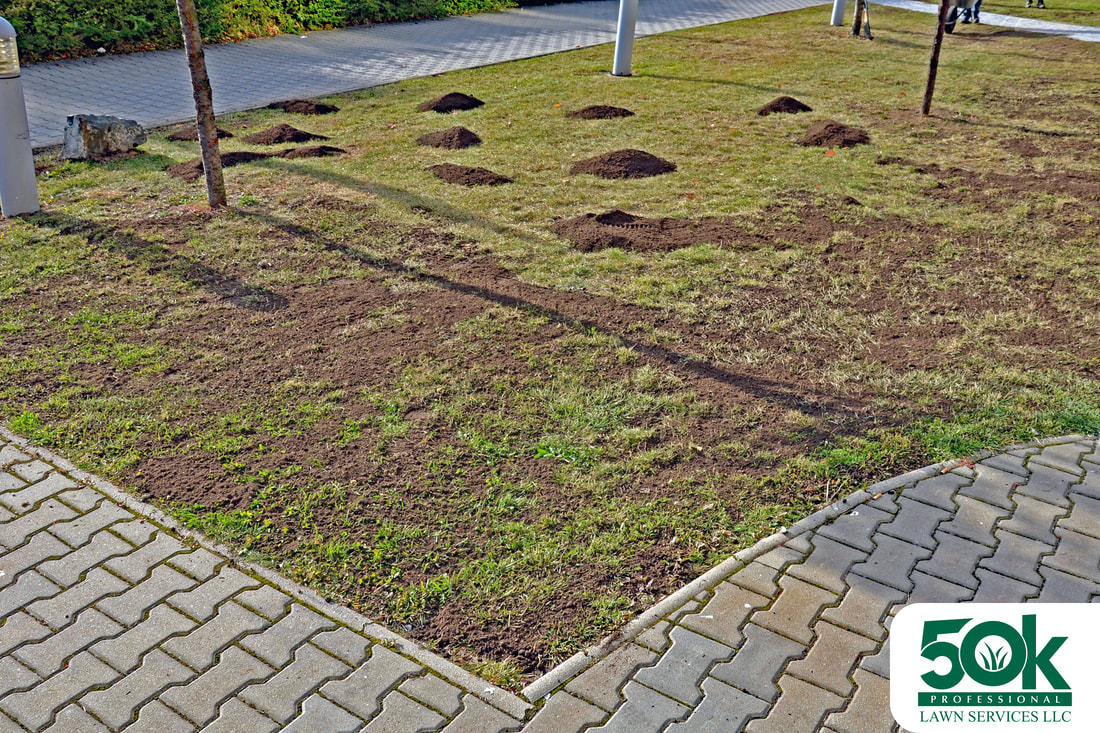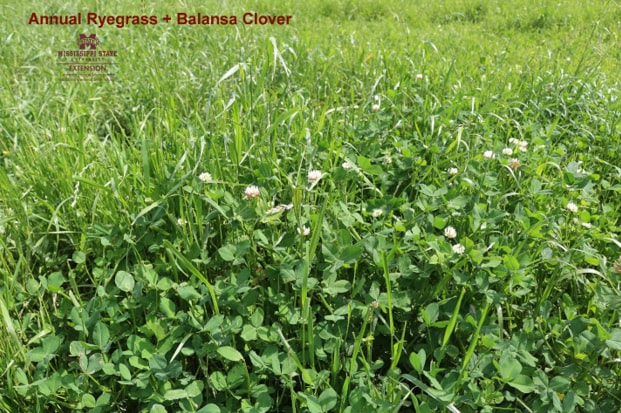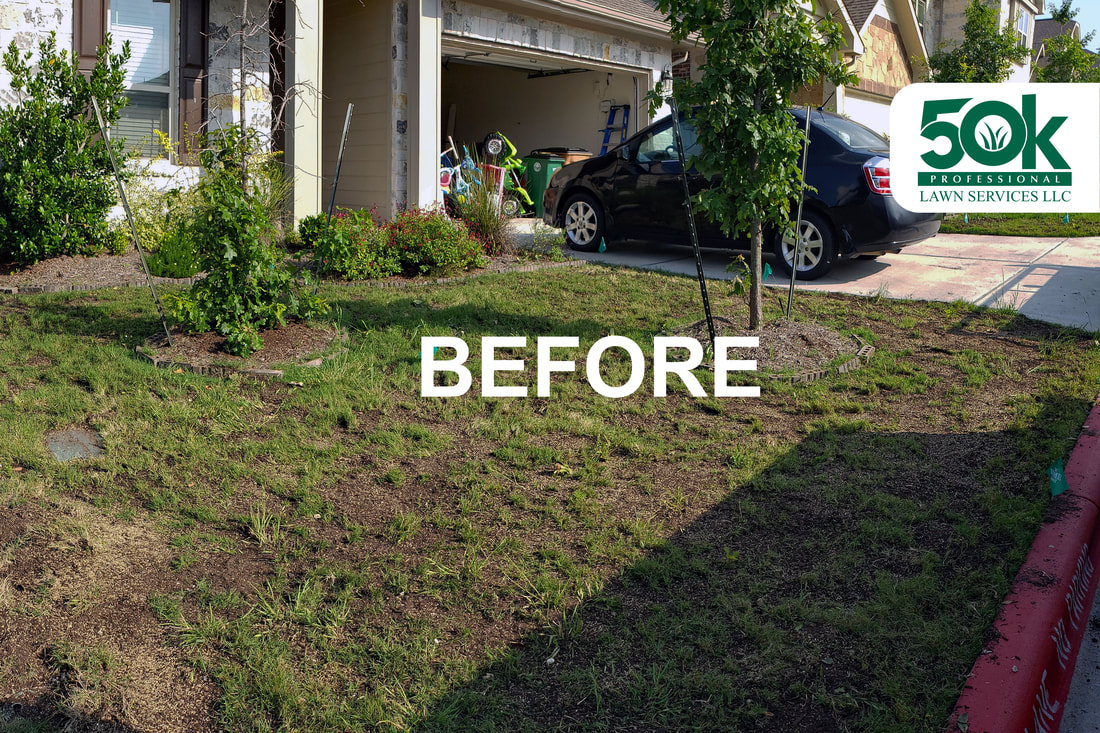Cultural and Biological Weed Control Management, 100% Organic and Natural. How do we do it?3/28/2023 We've been approached, researched, and investigated by multiple corporate giants and their industry investigators, all of whom have wondered, "How on earth do you control weeds without using our herbicides?" In this blog post, we aim to demystify the world of organic gardening. The ideas presented here are not original to us; instead, they are age-old practices handed down through generations of organic farmers. Unfortunately, much of this knowledge has been forgotten. We're here to immortalize these practices on the internet, helping to lessen our dependence on outdated chemical technologies. A little background about us: We're not a massive conglomerate but rather ordinary people who, like you, seek a normal, cancer-free life. From the beginning, we decided against using chemicals. We would rather not risk our health for profit. As a result, our journey has been filled with numerous obstacles and insurmountable challenges. We encountered a plethora of misinformation online, leaving us to wonder: either no one truly understands how to do organic weed control management correctly, or somebody is intentionally misinforming the public. Regardless, our goal was to find a 100% organic solution that works. Fortunately, we have discovered the answers that we are now presenting to you on a silver platter. There are several cultural and biological weed management strategies that homeowners like you (and even other companies) can use to control weeds in your lawns and gardens. These methods are more sustainable, environmentally friendly, and often more effective than using chemical herbicides. In fact, we are making this available to the public because as time goes by we really would rather have a societal paradigm shift. We would love to see the practices we found be use by other companies and lessen our overall exposure to chemicals.
When mulching around plant beds, avoid using weed fabric underneath the mulch layer. The reason for this is that organic mulch will naturally decompose over time, contributing to the nutrient cycling process and enriching the soil. Weed fabric can inhibit this decomposition process and may even create a barrier that prevents water and nutrients from reaching plant roots. Instead, opt for a thick layer of organic mulch, which will gradually break down and improve soil structure and fertility. As the mulch decomposes in plant beds, you may notice some weed germination or a decrease in the thickness of the mulch bed. This is an excellent time to hand weed specific areas and add more mulch to maintain its weed-suppressing abilities and continue promoting a healthy garden environment. Regularly monitoring and replenishing your mulch layers will ensure that your garden remains weed-free and vibrant. In lawns, areas that were top dressed would eventually be filled by perennial grasses. Note that this takes time. Root exudates propagate at 65F and warmer. If it is too cold, the lawn simply remains dormant until the right temperature comes. In addition to weed suppression, mulching provides other benefits such as moderating soil temperature, reducing soil erosion, and providing a habitat for beneficial insects and microorganisms. By incorporating mulching into your gardening routine, you can create a more sustainable, low-maintenance, and productive garden that thrives without the need for synthetic chemicals.
Leguminous cover crops, such as clover, have the unique ability to fix nitrogen from the atmosphere, making it bioavailable in the soil for future plant use. This characteristic can reduce or even eliminate the need for synthetic nitrogen fertilizers, promoting more sustainable urban and rural farming practices. Other cover crops, including buckwheat, barley, mustard, and radish, function as nutrient scavengers, preventing the loss of nutrients through leaching into groundwater or surface runoff. Cover crops also play a crucial role in soil conservation, particularly in highly eroded areas. They protect the soil surface from wind and water erosion while their root systems help anchor the soil, preventing the loss of valuable topsoil. Some cover crops produce allelopathic chemicals or attract beneficial insects that prey on pests, helping suppress soil-borne diseases and pests, reducing the need for chemical pesticides. Finally, cover crops contribute to a more balanced and resilient ecosystem by increasing plant diversity and providing habitat and food sources for beneficial insects, birds, and other wildlife. By integrating cover cropping into your gardening or farming practices, you can lessen unwanted weed germination, enhance soil health, productivity, and sustainability, working harmoniously with the environment.
Crop rotation and intercropping help break pest and disease cycles by reducing host plant availability, indirectly contributing to weed control by fostering healthier, more vigorous crop growth capable of competing with weeds. Relying exclusively on herbicides for weed control can result in herbicide-resistant weed populations. Employing crop rotation and intercropping as part of an integrated weed management strategy can minimize herbicide use and delay herbicide resistance development. Furthermore, crop rotation and intercropping boost biodiversity, attracting beneficial organisms like insects, birds, and microorganisms that help control weeds by consuming weed seeds or inhibiting weed growth. Overall, these practices contribute to more sustainable and environmentally friendly weed management solutions.
By carefully selecting companion plants that release allelopathic compounds or create physical barriers, you can naturally reduce weed growth and minimize the need for chemical weed control methods. Allelopathic plants: Certain plants release allelopathic chemicals that can inhibit the germination and growth of weeds. By planting these species alongside your desired plants, you create a natural form of weed suppression.
Examples of allelopathic plants include:
Examples include:
Incorporating a variety of plant species in your garden can make it more difficult for weeds to establish and thrive. Diverse plantings create a complex environment that offers different root structures, growth patterns, and resource competition, making it challenging for weeds to find a niche in which they can flourish. By using companion planting as part of your overall organic weed management strategy, you can create a more balanced and resilient ecosystem that naturally suppresses weed growth, reduces the need for chemical herbicides, and promotes healthier, more productive gardens. Lastly, the use of all the strategies above helps in creating a natural biological control. This is intelligent use of beneficial insects, such as ladybugs or lacewings, to control pests that can damage or weaken plants, can also indirectly help control weed growth. By combining these cultural and biological weed management strategies, homeowners can develop an integrated weed management approach that is effective, sustainable, and environmentally friendly. It's important to note that these methods require more time, expertise, and effort than using chemical herbicides, but the long-term benefits for soil health, plant productivity, and environmental health make them well worth the time investment. And this is where we come in. We do not sell a bag of fertilizer nor a bag of herbicide. That is the problem with doing things organically. It is not scalable and does not yield incredible returns. Fortunately, we just happen to love what we do. What we offer to our community is a lifelong commitment to organic lawn care and gardening in a highly urbanized environment. We are your personal organic farmer, but instead of propagating potatoes, we are growing grasses, and instead of growing giant sweet corns, we are propagating native flowers. Feel free to ask us any questions in the comments section below. We are here to help. 50K Professional Lawn Services LLC. 844-505-5296. Austin, Texas.
1 Comment
5/13/2024 10:00:55 am
I wanted to express my gratitude for your insightful and engaging article. Your writing is clear and easy to follow, and I appreciated the way you presented your ideas in a thoughtful and organized manner. Your analysis was both thought-provoking and well-researched, and I enjoyed the real-life examples you used to illustrate your points. Your article has provided me with a fresh perspective on the subject matter and has inspired me to think more deeply about this topic.
Reply
Leave a Reply. |
Call or Text |




